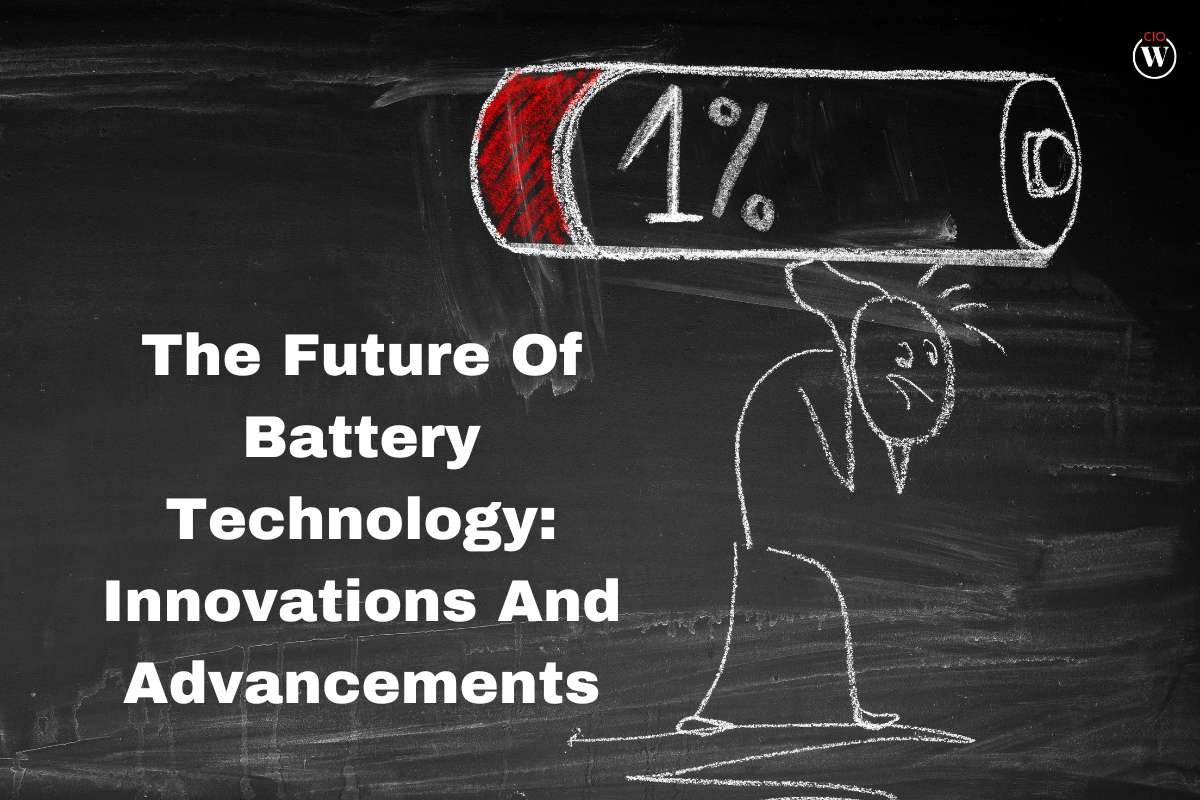It is safe to say that the future of battery technology is the backbone of our modern electronic world. The industry currently is undergoing a transformative evolution. With technology at the forefront of every transformation, the demands of portable power, renewable energy storage, and electric transportation are seeing a surge. Keeping up with these demands, scientists’ engineers, and innovators are looking at new avenues and pushing the boundaries to better understand what batteries can achieve.
Innovators and engineers have been exploring everything from novel materials to revolutionary designs, battery technology has a promising future of greater efficiency. These further experiments can also include batteries to have longer lifespans and unimaginable capacities, reshaping large industries and even transforming our daily lives.
Here is all about the future of battery technology;
1. Challenges and Current Landscape
The search for advanced battery technology is met with some critical challenges, which are becoming even more evident in recent years. The most important among them is a need for higher energy density. Higher energy density is important because it is the one thing that enables devices to last long and also helps in extending ranges for electric vehicles. Adding to this, the safety concerns for traditional lithium-ion batteries have also led researchers to look for non-flammable and non-toxic alternatives.
The current battery landscape predominantly revolves around lithium-ion technology, which has served us well but is reaching its limits in terms of capacity and safety. Consequently, researchers are exploring alternatives such as solid-state batteries, lithium-sulfur batteries, and even beyond-lithium technologies like sodium-ion and magnesium-ion batteries. These innovations are not only addressing existing limitations but also opening doors to previously unimaginable applications.
2. Solid-State Batteries: A Paradigm Shift
One of the most anticipated breakthroughs in battery technology is the development of solid-state batteries. Unlike conventional liquid electrolytes, solid-state batteries use solid electrolytes, mitigating the risk of leakage, improving thermal stability, and potentially enabling higher energy densities. This technology could revolutionize electric vehicles by providing longer ranges, shorter charging times, and enhanced safety.

Moreover, solid-state batteries hold potential for wearable devices, medical implants, and IoT devices, where safety and form factors are paramount. Companies like Toyota, BMW, and startups like QuantumScape are investing heavily in this technology, with hopes of commercializing solid-state batteries in the near future.
3. Lithium-Sulfur Batteries: Unlocking Greater Energy Density
Lithium-sulfur (Li-S) batteries are another avenue of exploration in the quest for higher energy densities. Sulfur is abundant, lightweight, and has a high theoretical energy capacity, making it an attractive candidate to replace traditional cathode materials. Li-S batteries could potentially offer two to three times the energy density of lithium-ion batteries, significantly extending the range of electric vehicles and the operational life of portable electronics.
However, challenges such as the “shuttle effect,” where sulfur migrates and reduces the battery’s lifespan, need to be overcome. Researchers are working on novel materials and designs to mitigate these issues and bring Li-S batteries closer to practical application.
4. Beyond Lithium: Sodium and Magnesium Batteries
As lithium resources become more constrained and demand continues to rise, researchers are exploring alternatives that harness more abundant elements. Sodium-ion and magnesium-ion batteries are two such options. Sodium-ion batteries, which share similarities with lithium-ion batteries, offer the advantage of using sodium, a widely available and cost-effective material.

Magnesium-ion batteries, on the other hand, boast higher energy densities than lithium-ion batteries and could excel in applications where weight is less of a concern, such as stationary energy storage. While these technologies are still in their infancy, they hold potential for a more sustainable and diverse battery landscape.
5. Innovations in Charging and Energy Storage
The future of battery technology goes beyond the batteries themselves and extends to the charging infrastructure and energy storage solutions. Fast-charging technologies are being developed to alleviate range anxiety for electric vehicles, aiming to deliver high energy in short periods without compromising battery longevity. Wireless charging is also gaining traction, with research focused on transferring energy over short distances to facilitate seamless charging experiences.
Energy storage solutions, such as grid-scale batteries and home energy storage systems, are becoming integral to managing intermittent renewable energy sources like solar and wind. These systems store excess energy when supply exceeds demand and release it when demand spikes, contributing to grid stability and reducing reliance on fossil fuels.
6. Applications and Impact of Battery Technology
Advanced battery technology has much more profound applications and impacts on the overall industries. As batteries evolve to perform better giving users longer ranges and fast charging times, electric vehicles are also set to become mainstream. As people transition from fossil fuels to electricity-run vehicles, the greenhouse gas emissions could also heavily reduce as well as the dependence on fuels. Especially looking at aerospace industries, the lightweight and high-energy-density nature of these batteries can also lead to much more efficient aircraft and long-lasting drones.

On a consumer level, improved battery technology translates to longer-lasting smartphones, laptops, and wearable devices. Imagine a world where your smartphone could last several days on a single charge or where medical implants operate for years without needing replacement surgeries.
Conclusion
In conclusion, the future of battery technology has exciting possibilities laid ahead. From solid-state batteries, to innovations in the lithium-sulfur battery technology, and also looking at beyond-lithium alternatives, researchers, engineers, and innovators are making way for a new era of sustainable energy storage and portable power. And as we look at the advancements, industries will undergo a significant transformation. Along with it, this new era would also revolutionize the way we live, work, and even travel. The relentless pursuit of better, safer, and more efficient batteries is not only a testament to human ingenuity but also a key enabler of a greener, more connected, and electrifying future.









